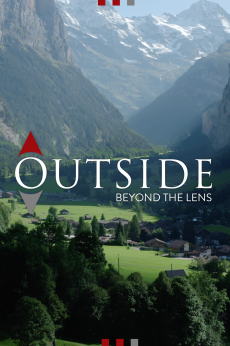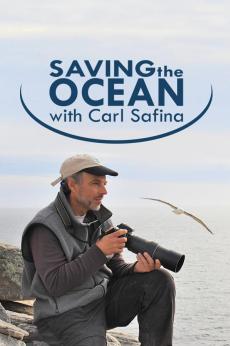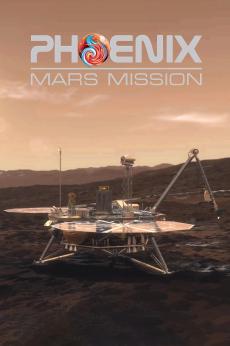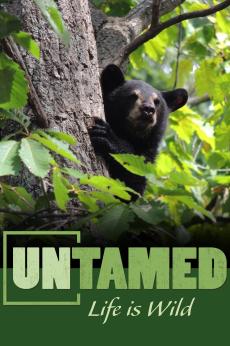Changing Planet
Cameras in space show just how fast our planet is changing. Cities are growing, forests are disappearing and glaciers melting but in Tanzania locals have regenerated the landscape, saving a family of chimpanzees.
Episodes
-


Changing Planet
S1 E4 - 54m 10s
Cameras in space show just how fast our planet is changing. Cities are growing, forests are disappearing and glaciers melting but in Tanzania locals have regenerated the landscape, saving a family of chimpanzees.
-


Patterned Planet
S1 E3 - 54m 10s
From space earth’s surface is covered in weird and wonderful shapes. Wombats design their own landscape in Australia and hundreds of forest elephants create a tear in the endless green of the Congo forest canopy.
-


Colorful Planet
S1 E2 - 54m 9s
From space earth is not just a blue planet but a kaleidoscope of color. Swirls of turquoise phytoplankton trigger an oceanic feeding frenzy, China turns yellow as millions of flowers bloom and at night the waters off the coast of Argentina are spotted with mysterious green lights.
-


Moving Planet
S1 E1 - 54m 8s
Cameras in space tell stories of life on our planet from a brand new perspective. Our planet is constantly on the move; from individual animals to powerful weather systems. Follow an elephant family struggling through drought and marvel as thousands of Shaolin Kung-Fu students perform in perfect synchronicity.
Extras + Features
-

Reforestation
S1 E4 - 1m 21s
The reforestation of trees in Tanzania could save a community of Chimpanzees. Deforestation around their reserve left the community isolated but now new chimps have been seen using the newly forested corridors to move into the area. Potential mates and a sign of a brighter future.
-

The Disappearing Lake
S1 E4 - 2m 21s
As the water levels drop at Poyang Lake thousands of birds arrive to feed on the roots of aquatic plants that are uncovered. Critically endangered Siberian cranes travel the furthest; a month long journey for the unique feeding opportunity brought about by the changing water levels.
-

Episode 4 Preview | Changing Planet
S1 E4 - 30s
Cameras in space show just how fast our planet is changing. Cities are growing, forests are disappearing and glaciers melting but in Tanzania locals have regenerated the landscape, saving a family of chimpanzees.
-

Human Change
S1 E4 - 2m 4s
Cameras in space show mines sprawl and irrigation circles appear in the desert. We have found ingenious ways to use earth’s natural resources but we have also left our trash behind.
-

The Desert Transforms
S1 E3 - 2m 52s
A paninga turtle heads deep into the burning desert for an extraordinary weather event. Rain fill the dunes, creating hundreds of pools. Only from space can we appreciate the scale of the transformation.
-

Using Satellites to Make Discoveries
S1 E3 - 1m 58s
The world’s longest beaver dam in Alberta and an island of unexplored forest on top of vertical cliffs in Mozambique are two incredible discoveries made using satellite images.
-

Village of the Elephants
S1 E3 - 1m 6s
A tear in the forest canopy of the Congo has been created by the movement of elephants.
-

Episode 3 Preview | Patterned Planet
S1 E3 - 30s
From space earth’s surface is covered in weird and wonderful shapes. Wombats design their own landscape in Australia and hundreds of forest elephants create a tear in the endless green of the Congo forest canopy.
-

The Aurora
S1 E2 - 1m 48s
From space the aurora is even more spectacular. The lights are brighter and the sheer scale of this natural spectacle is revealed.
-

4,000 Parakeets
S1 E2 - 1m 57s
When Joseph Sekar put out food for two parakeets struggling in the city little did he know that 15 years later he would be feeding 4,000 birds. He and his granddaughters prepare their rooftop for the arrival of the parakeets.
-

Episode 2 Preview | Colorful Planet
S1 E2 - 30s
From space earth is not just a blue planet but a kaleidoscope of color. Swirls of turquoise phytoplankton trigger an oceanic feeding frenzy, China turns yellow as millions of flowers bloom and at night the waters off the coast of Argentina are spotted with mysterious green lights.
-

China’s Yellow Fields
S1 E2 - 1m 23s
Thousands of rapeseed flowers bloom en masse transforming the landscape on a scale that can only truly be appreciated from above. Nomadic beekeepers arrive in time for the bloom to make honey but their window of opportunity is short. The fields will be sprayed with pesticides in just two weeks.
Schedule
PBS PASSPORT
Stream tens of thousands of hours of your PBS and local favorites with WETA+ and PBS Passport whenever and wherever you want. Catch up on a single episode or binge-watch full seasons before they air on TV.
Similar Shows

PBS Space Time
Science and Nature

Outside Beyond the Lens
Science and Nature

Saving the Ocean
Science and Nature

Breakthrough: The Ideas That Changed the World
Science and Nature

Phoenix Mars Mission: Onto the Ice
Science and Nature

Mysteries of Mental Illness
Science and Nature

Untamed
Science and Nature

Chesapeake Bay Week
Science and Nature

Reactions
Science and Nature

The Colorado
Science and Nature